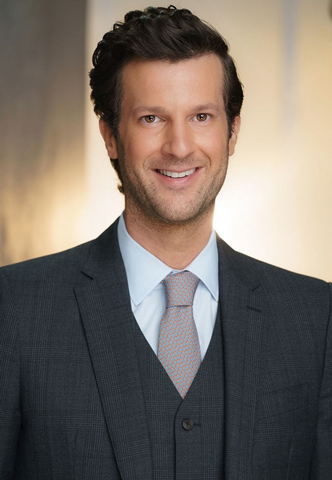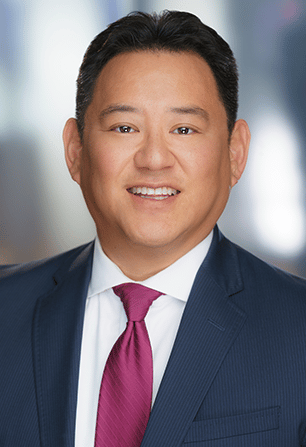Living With a Traumatic Brain Injury
Traumatic Brain Injury (TBI) can happen following an accident or trauma of any kind. Unfortunately, these head injuries are often quite severe and result in permanent disability or loss of life. Suffering a brain injury, especially when another person’s negligence caused the accident, can be traumatizing.
There are physical and mental ramifications, but TBI patients face a long, expensive road to recovery. The Los Angeles brain injury lawyers at Wilshire Law Firm understand what you are going through and will do everything we can to help you recover compensation. If another person or entity disregarded your safety, leading to a TBI, let us fight for you and ensure those responsible are held accountable for their actions.
Why Do Traumatic Brain Injuries Occur?
Your brain works hard for you. From regulating your nervous system to controlling your breathing, your brain plays a role in just about every part of your life. But what if your brain could no longer perform all these tasks, forcing you to need permanent help with everyday tasks? For most of us, that would be incredibly frightening. But for the more than nearly 5 million Americans living with a Traumatic Brain Injury(TBI)-related disability today, this is their reality.
More than 2.5 million Americans each year sustain a traumatic brain injury, defined here as a head injury that damages brain tissue.
Known as “The Silent Epidemic,” traumatic brain injuries occur due to several different causes, the most likely of which are:
- Motor vehicle accidents
- Slip and fall accidents
- Being struck by or against an object
- Assault(s)
Brain injuries range in severity from mild, which is commonly referred to as a concussion, to more moderate or severe neurological injuries, which often have long-lasting or permanent effects. In addition to this, head trauma injuries are further classified as being either an open TBI, where an object penetrates the skull and enters the brain, or they can be referred to as a closed TBI.
When the latter happens, the victim experiences a violent, non-penetrating blow to the head. The resulting brain swelling may starve the victim’s brain of oxygen, causing what is known as a hypoxic brain injury.
Traumatic Brain Injury Statistics
Traumatic brain injury statistics provide a clearer picture of just how serious these types of injuries are. According to the American Speech-Language-Hearing Association and the National Center for Injury Prevention and Control, an estimated 5.3 million people live with a TBI-related disability in the United States alone.
Here are a few additional traumatic brain injury statistics to help you better understand how serious these types of injuries are:
- Approximately 775,000 older adults have a long-term disability linked to TBI
- Males are more likely to sustain a TBI (16.7 percent) than women (8.5 percent)
- 75 percent of TBI cases are mild and can be treated outside of a hospital setting
- There are 7 million new cases of TBI in the U.S. every year
- There are an estimated 235,000 hospitalizations for TBI every year (this is 20 times more than hospitalizations for spinal cord injuries)
- Each year, between 80,000 and 90,000 Americans face long-term disabilities as a result of TBI
- 50-70 percent of accidents resulting in TBI are due to car accidents
- Falls are the leading cause of TBI in the United States, accounting for 1.3 million brain injuries
- 150 Americans die every day because of TBI
What Is the Most Serious Type of Brain Injury?
The most serious type of brain injury is usually caused by crushing blows or penetrating wounds to some part of the head. These are often more severe because they compromise the delicate brain tissue in some capacity. Severe head trauma typically causes an open head injury that results in the skull being crushed or fractured.
Given the nature of these injuries, treatment often includes long-term hospitalization and years of rehabilitation. While open head injuries are considered the most serious, please keep in mind that closed head injuries can also lead to severe trauma – or worse.
How Are Traumatic Brain Injuries Prevented?
You can prevent traumatic brain injuries. The Center for Disease Control and Prevention (CDC) has published a number of tips that will reduce your chances of sustaining a traumatic brain injury.
In addition to always wearing a seatbelt when riding in a motor vehicle, the CDC recommends taking the following steps to prevent TBI:
- Never drive under the influence of drugs or alcohol
- Wear a helmet or appropriate headgear during activities such as bike riding or snowboarding
- Seat children in the proper car or booster seat to lower the risk of TBI
- Take steps to prevent falls, especially among older adults
- Perform strength and balance exercises
- Have your eyes checked regularly
- Take steps to make your home safer
- Take sports safety seriously
- Educate young adults about concussion safety, especially those who play sports
- Take steps to prevent head injuries in children by installing window guards, using safety gates, keeping stairs free of clutter, and using a non slip mat in the bathroom
Older adults and parents with young children should take additional safety measures throughout their homes, as children and seniors are two groups at high risk of suffering a brain injury.
Safety bars, safety gates, and window guards all help prevent accidents around the home and reduce THIs risk. If you or someone you love suffers a head injury, contact Wilshire Law Firm to learn more about traumatic brain injury claims in Los Angeles. We are here to answer your questions and help you navigate the legal system.
What Are the Symptoms Associated With Traumatic Brain Injury?
While a severe traumatic brain injury is usually apparent, identifying and diagnosing mild to moderate brain injuries can be more challenging, especially if any superficial injuries have also occurred.
Several psychological symptoms are danger signs of a brain or brain stem injury, including:
- Trouble recognizing people or places
- Difficulty concentrating
- Confusion, restlessness, or agitation
- Unusual behavior
These symptoms may present themselves right away, but it is also possible that head injury symptoms will not appear until days later. After a head injury or other brain trauma, it’s vital to keep an eye out for any physical manifestations of a brain injury in the immediate aftermath of a head trauma event.
Some of the typical physical symptoms of TBI are as follows:
- Persistent headache
- Loss of consciousness
- Convulsions or seizure
- Nausea and vomiting, particularly in children
- Fatigue or drowsiness
- Slurred speech
- Dizziness or loss of coordination
- Changes in vision
- Different sized pupils
- Clear fluids leaking from the nose or ears
- Hearing loss or hypersensitivity to sound
- Numbness or weakness in the fingers or toes
The symptoms of a brain injury are frequently linked to the brain’s areas that have experienced damage. Commonly damaged locations in the brain include the:
- Frontal lobe
- Temporal lobe
- Orbitofrontal cortex
- Cerebellum
- Occipital lobe
- Angular gyrus
- Parietal lobe
- Sensory cortex
- Olfactory bulb
Measuring the severity of a traumatic brain injury involves subjecting the victim to various stimuli and measuring their eye-opening, verbal, and motor responses using the Glasgow Coma Scale (GCS). Head injuries are classified under this system as mild head injuries, moderate head injuries, and severe head injuries, with catastrophically injured victims offering few responses during testing.
It’s crucial to remember that there are many signs of a traumatic brain injury, some of which might not appear right away. The most important thing you can do following a traumatic brain injury is to monitor for any changes in the victim’s physical or mental condition, seeking immediate medical attention when something changes or doesn’t seem right.
What Are the Long-Term Effects of Traumatic Brain Injuries?
Everyone responds to a brain injury differently. Some symptoms may appear right away, while others will gradually become more apparent. Worse still, some head injury effects may not show up until years later and may even be permanent, eventually requiring special equipment or care and affecting a victim’s ability to work and live independently.
In most cases, the long-term effects of traumatic brain injuries in adults and children will present in one or more of the following ways:
- Physical Impairments such as difficulty eating, breathing, and exercising can occur, and treatment may require special rehabilitation programs or expensive mobility devices.
- Cognitive Disabilities that affect a victim’s ability to think, organize, and act independently can have permanent effects on both the victim and their family.
- Issues with hearing, reading, writing, speaking, and trouble with numbers can lead to long-term Communication Issues.
- Whether it’s because of the injury itself or the results of the injury on the victim’s life, the emotional trauma that results may be something that a TBI victim carries with them for the rest of their life.
- TBI victims may become reckless, impatient, obsessive, or develop other behavioral impairments that were not present prior to their injury.
- If the brain’s voluntary movement portion is injured, muscles may become continuously stiff or spastic, interfering with the victim’s ability to speak, move, eat, and even breathe.
Victims may suffer through multiple surgeries and lengthy rehabilitation programs, a development that severely curtails a survivor’s ability to hold a job, live on their own, or truly enjoy life.
For many, merely reaching the point of Maximum Medical Improvement (MMI) is a difficult task—TBI survivors and their brain injury attorney may consult with all of the following during the recovery process:
- A neurologist
- A neurophysiologist
- A neuropsychologist
- A respiratory therapist
- An occupational therapist
- A speech/language pathologist
- A recreational therapist
- A physical therapist
- A cognitive therapist
- A life-care planner
- Rehabilitation nurses
The expense of working with so many medical experts is the reason that many victims and their families eventually seek out the services of a brain injury attorney.
Who Can Be Found Liable for a Traumatic Brain Injury?
Identifying the parties responsible for a traumatic brain injury isn’t as easy as you might think. Brain injuries occur for a variety of reasons and in a variety of ways, which means that the parties liable for causing a traumatic brain injury vary greatly from case to case.
Depending on the case’s circumstances, the following parties may potentially be found liable for a victim’s traumatic brain injury:
- A negligent driver, the vehicle owner, or the driver’s employer
- Product manufacturers
- Shipping companies
- Retailers
- Truck drivers or trucking companies
- Bus drivers or bus companies
- Motorcyclists
- Boat operators
- Car repair shops
- Product manufacturers and sellers of goods
- Public and private owners of the land
- Business owners
- Airplane operators
- A public entity (e.g., a local or state government)
- Anyone who acted negligently or who intentionally disregarded another person’s safety, causing a traumatic brain injury
In many TBI cases, the victim’s family and friends serve as witnesses to the severe toll that brain damage has taken on the victim. Your personal injury lawyer may also consult with medical and forensic experts and arrange for sworn testimony to bolster your case. It is crucial to keep in mind that anyone – adult or minor – can sue for TBI if another person’s negligence caused their injury. Furthermore, anyone whose misactions, negligence, or wrongful conduct caused the accident and head injury can be held liable.
What Compensation Is Available for Victims?
As the traumatic brain injury recovery statistics showed, these types of head injuries are often severe and generally result in costly medical bills and rehabilitation. Given the grave nature of traumatic brain injuries, victims and their families are often entitled to immense compensation. While there may not be immediate symptoms in the wake of a traumatic brain injury, as the effects play out over time, there can be extensive costs associated with care for the victim.
Because of this, there are many damages that victims and their families are entitled to recover, including:
- Medical Bills
This begins with initial emergency care and further includes any rehabilitation and other life-support services.
- Pain and Suffering
No matter if the impairments are short or long-term, if you suffered a traumatic brain injury that affected your enjoyment of life, preventing you from doing activities you once loved, you may be entitled to recover those damages.
- Lost Wages
This covers any time that a victim may have had to take off from work to recover.
- Impairment of Earning Capacity
When a victim’s ability to work for a living becomes diminished, their likely future earnings suffer consequences.
- Lifestyle Changes
This is for victims who are no longer able to perform normal activities that added to their quality of life before their injury.
- Future Damages
If a victim is likely to suffer additional problems in the future as a result of their TBI, they can seek compensation for this.
- Life Care
Brain injury victims may never again be able to drive, clean, cook, or take care of other everyday tasks, relying instead on paid services for these tasks.
- Punitive Damages
If the party who caused the victim’s brain injury acted recklessly, with malice, or negligently, punitive damages may be awarded to the victim and their family.
Because the legal system is so complex, employing a brain injury lawyer’s services is a TBI victim’s best chance at recovering full compensation. To learn more about California brain injury settlements, contact us today.
The brain injury lawyers at Wilshire Law Firm compassionately represent and understand the needs of traumatic brain injury victims, working tirelessly to ensure that innocent victims receive full compensation for their out-of-pocket costs and future medical care.
For clients without medical insurance or other means of paying, Wilshire Law Firm can help arrange for all required medical treatment by working with doctors and hospitals to accept payment on a lien basis. Our focus is on our clients and achieving the best settlement possible for their injuries. If you or someone you know has suffered a traumatic brain injury, call Wilshire Law Firm today at (866) 949-0079 or fill out our online contact form to get started with your FREE case consultation.
Resources for Traumatic Brain Injury Survivors
- Learning Services has compiled a nationwide list of helpful resources for victims and their families
- America’s oldest brain injury advocacy organization, the Brain Injury Association of America (BIAA), seeks improved quality of life for all brain injury survivors
- BrainLine offers information regarding the prevention, treatment, rehabilitation, and recovery from traumatic brain injuries
- Brain trauma victims and their families can find a comprehensive directory of suitable rehabilitation facilities through the Commission on Accreditation of Rehabilitation Facilities (CARF)
Contact an Experienced California Brain Injury Lawyer Today
If you or a loved one suffered a serious injury like TBI, please contact our Los Angeles brain injury attorneys. These types of injuries have the potential to affect many different aspects of a person’s life, including their ability to work, perform household duties, drive, and enjoy life.
In the event you were the victim of another person’s negligence that caused a TBI, you may be able to seek compensation for past and future medical expenses, pain and suffering, lost wages, decreased quality of life, and more. We can help you – contact us today and schedule a free consultation.
Traumatic Brain Injury FAQ
What Is a Traumatic Brain Injury (TBI)?
According to the CDC, TBI is “a disruption in the brain’s normal function that can be caused by a bump, blow, or jolt to the head, or penetrating head injury.
What Should I Do After a Traumatic Brain Injury?
The most important step to take following a TBI is to seek medical attention immediately. After a doctor has assessed you and has a better understanding of your injuries, you can look ahead to your next options. Depending on your specific case, it may be smart to contact a California brain injury lawyer to discuss details and determine if you can take legal action.
Which Factors Affecting a Traumatic Brain Injury Settlement?
Some of the factors that may influence a traumatic brain injury lawsuit include:
- Hospital and emergency room bills
- Medical testing
Rehabilitation - Age of the victim
- Neurological testing
What is the Leading Cause of Traumatic Brain Injury?
Falls are responsible for 1.3 million of all brain injuries.
How Long Does it Take to Recover from Traumatic Brain Injury?
The time it takes to recover from a TBI will depend on the person and the extent of the injury. On average, patients who suffer TBI will take about two years to recover, but some patients experience additional improvements 5-10 years after injury.
Who is at Highest Risk for TBI?
Males are at a higher risk of TBI than females, and adolescents, young adults, and older adults are more susceptible than other demographics.
The time you have to file your claim is limited, but don’t trust your case to just anyone. For proven legal strategies that get results, call Wilshire Law Firm today at (877) 544 0852—or fill out our online contact form—to get started with your FREE case consultation.











